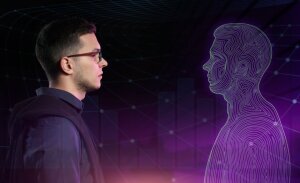Dutch researchers set to work on digital twin tech for stroke care
by
John R. Fischer, Senior Reporter | December 15, 2023

Amsterdam UMC and 19 partners are building a digital twin for determining the best forms of stroke care in individual patients.
Dutch researchers at Amsterdam UMC have 19 partners, €10 million, and six years to complete one goal — create a digital twin solution to simulate and find the best possible stroke treatment for individual patients.
Once considered science fiction, digital twin technology has become a growing source of excitement in many industries, as advances in AI and quantitative imaging have put mankind at the cusp of embracing and leveraging this technology in everyday life. Using complex algorithms and sensors with real-time data, the solution creates virtual replicas of things in the physical world, including actual people, that researchers can run simulations on to determine how the subject may behave under diverse conditions.
Through the €10 million grant from the European Commission, Amsterdam UMC plans to build this technology with its 19 partners over the next four years and spend the last two turning it into a computer simulation that doctors can run to determine the best course of action for treating an individual patient who suffers a cerebral infarction or cerebral hemorrhage.
For example, running simulations on a patient with cerebral infarction can allow doctors to see which treatment would leave a blood clot intact versus disintegrating it, the latter of which can be potentially life-threatening.
"Stroke care has been strongly evolving with the introduction of new treatments and their associated changes in the logistics of stroke patients. The data collection that we collect for and during these evolvements gives input for new understanding of stroke (which patients to treat, how to treat). Moreover, the continuously growing number of treatment options necessitates additional knowledge for what situations and patients specific treatments have benefits," Henk Marquering, professor of translational artificial intelligence at Amsterdam UMC, told HCB News.
This information can include blood pressure, heart rhythm, brain scan data, medical history, and more; and the way of entering it into a computer model is called knowledge-based artificial intelligence, which combines in-depth biological and medical knowledge of diseases like stroke, as opposed to only looking at large amounts of data like data-driven AI.
To create this type of AI, computer scientists and doctors will work together. Partners of Amsterdam UMC are from 12 different countries and will contribute their own expertise in computer simulation and medicine. Two partners from Switzerland and one from Taiwan are also contributing an additional €3 million to the project. Another, startup company, inSteps, is also refining in-silico technology developed in the IN-Silico trials for treatment of acute Ischemic STroke (INSIST) program for use in this project, and other commercial partners are expected to help upgrade materials and solutions applied to create the digital twins.
"We also foresee valuable developments in other device-related interventions such as transcatheter aortic valve replacement for patients with heart valve disease," said Marquering.
“A treatment that has first been virtually tested on your digital twin? Now that's tailor-made care," said Charles Majoie, a professor of neuroradiology at Amsterdam UMC.
|
|
|
You Must Be Logged In To Post A Comment
|
